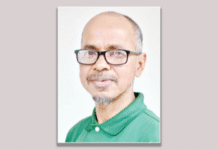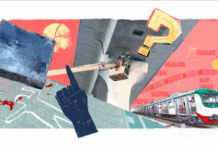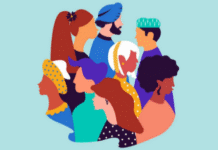
Bangladesh was born in 1971 with the aspirations of establishing a democratic system and the constitution was drawn up with the aim of upholding democracy and democratic values. But in the 50 years of Bangladesh’s independence, these aspirations remain unfulfilled. In fact, these dreams paled within a few years of independence.
The one-party government established in January 1975 can be called nothing less than authoritarian. Then in the same year, in August and November, a couple of military coups took place. Bangabandhu Sheikh Mujibur Rahman and top ranking leaders of the country were killed, ushering in military authoritarian rule.
The next 15 years saw direct military rule, the assassination of Ziaur Rahman and the rise of Ershad. After an eight-year movement to re-establish democracy, Ershad’s military government was finally toppled in December 1990.
Appointments to the lower courts, administrative work, and the power to impeach all lie in the hands of the executive. In 2014, the constitution was amended in parliament, removing the impeachment powers of the chief justice. It is said that the chief justice had to resign in 2017 for cancelling this amendment
The political parties, however, began to use the various institutions to consolidate their own power, rather than building these up to strengthen democracy. The bitter enmity and tussle for power between BNP and Awami League emerged from the parliament to the streets and violent movements broke out. This bitterness reached such a height that in 2004 the ruling BNP tried to cover up the attempt on the life of opposition leader Sheikh Hasina and even drew some of the involved persons into their fold.
The violence conflict between the two parties from 1991 rendered the parliament ineffective. Rather than consolidating democracy, measures were taken to gradually handover all power to the prime minister. The democratic institutions grew weak and systematically the prime minister became the centre of all power.
The reason that the elections from 1991 to 2008 were free and fair, with the exception of that on 15 February 1996, was that these were held under the caretaker government system. In 2006, the conflict over the caretaker government system reached a height between the two parties because BNP had used the constitution to use the caretaker system in its own favour. Violence escalated. Political violence and pressure from the international community paved the way for military intervention. The military-backed caretaker government emerged on the scene.
Initially this government had the support of the international community as well as that of the people. However, economic crisis, depoliticisation in the name of political reforms and extended stay in power gave rise to questions concerning the motive of that government. The next election in 2008 saw Awami League come to power.
A recent remark made by justice Mirza Hossain Haider before he retired points to questions that remain despite the court ruling regarding independence of the judiciary and the steps taken in 2007. He said, constitutionally the judiciary in independent, but we all know and understand how far this is in reality.
There exists just a shell of democracy now, with perfunctory elections, a controlled opposition and mere rhetoric regarding democracy. Bangladesh has moved far away from the commitment made at the start of its journey, the commitment to establish a participatory political system
Appointments to the lower courts, administrative work, and the power to impeach all lie in the hands of the executive. In 2014, the constitution was amended in parliament, removing the impeachment powers of the chief justice. It is said that the chief justice had to resign in 2017 for cancelling this amendment. He even says he was forced to leave the country.
Alongside taking up repressive measures to curb freedom of expression, this government has created a situation where there are no differences between the state, the government and the political party. That is why criticising the government or the ruling party is tantamount to anti-state activities. The two very different issues of criticising the government or the ruling party leaders and tarnishing the image of the state, has become one and the same.
Allegations of rigging in the consecutive elections of 2014 and 2018, curbing freedom of expression, an increase in extrajudicial killings and rendering the judiciary questionable, all indicate just how far Bangladesh has moved away from the spirit of independence and democracy. Neither the independence of the legislative that was supposed to have been established at the outset of Bangladesh’s independence, nor the accountability of the institutions, materialised. On the contrary, the supreme power of the executive was established. The parliament is not the centre of power now, the people are not the source of rule. It is the rule of sheer force.
There exists just a shell of democracy now, with perfunctory elections, a controlled opposition and mere rhetoric regarding democracy. Bangladesh has moved far away from the commitment made at the start of its journey, the commitment to establish a participatory political system.
* Ali Riaz is a distinguished professor at the Illinois State University in the US, a nonresident senior fellow of the Atlantic Council and the president of the American Institute of Bangladesh Studies.
* Saimum Parvez is a teacher at North South University’s department of political science and sociology. He recently earned his doctorate degree from the University of Sydney. He carries out research on terrorism, digital media and Bangladesh politics.
* This column appeared in the print edition of Prothom Alo and has been rewritten for the English edition by Ayesha Kabir









